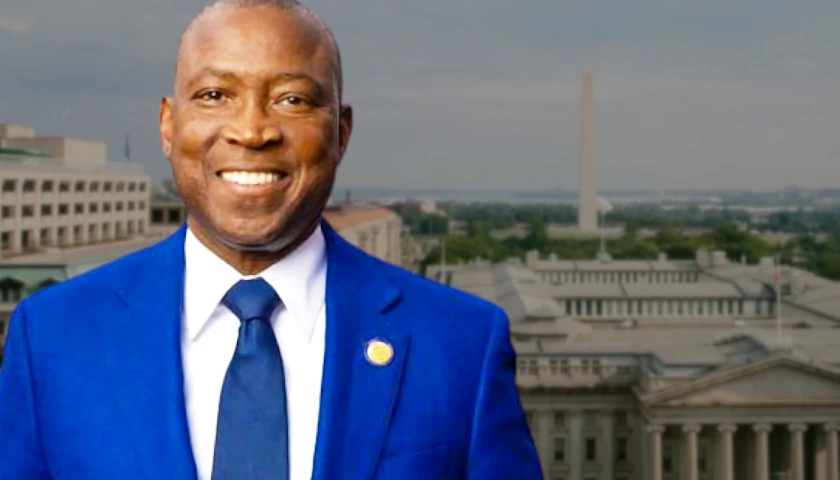I recently read a fantastic editorial by political strategist and analyst, Steve Gill, on the National Education Association, The Californication of the Teachers’ Union. The article sheds much light on the union, the amplified influence by more liberal state affiliates like New York and California of the National Education Association, which makes them “loyal foot soldiers to advance liberal extremism.” Mr. Gill makes a compelling case, and it is well worth the read. I would have added:
- NEA and its affiliates had money difficulties well before the Supreme Court ruling in Janus v. AFSCME. As Mike Antonucci writes: The union “ability to adapt to a new environment depends less on their political and organizing skills and more on their willingness to reform themselves financially.” So, why are union bosses seeing their salary continue to increase?
- Teacher Unions continue to put roadblocks in place to prevent their members from exercising their freedom of association. Often, they will use any legal means at their disposal to combat members who want to resign. Take, for example, the difficulty in terminating automatic drafts to pay membership dues. Unions often place a narrow window of opportunity for employees to drop union membership and escape the requirement of paying union dues or fees. For educators, that date may be limited to summer months and are designed to be inconveniently timed for members. In addition, unions blatantly will contribute to political candidates.
- When it comes to a private entity making a killing from public education, the teachers’ unions have the market cornered. The next time you hear a union boss talk about “privatizers” who seek to profit from public education, point out for them that “union leaders neglect to point out that teachers’ unions are themselves de facto corporations, though with a difference: all their income—money they get from teachers, voluntarily or otherwise—is tax-free. No teachers’ union—or any union—pays a penny in taxes.” As teachers’ union watchdog Mike Antonucci writes, “The NEA sinks lots of money into mutual funds, which invest in big corporations, including “AT&T, Verizon, Target, Chevron, Exxon Mobil, IBM, Apple, Google, Facebook, Amazon, Comcast, Coca-Cola, Philip Morris, Microsoft, Boeing, JP Morgan Chase, Berkshire Hathaway, and Aramark.” The NEA “invests in 9 of the 10 richest corporations in the United States,” added Mr. Antonucci.
- Four unions combined to spend more than $1 billion on political activities since 2012, according to federal labor filings. Those four are the Service Employees International Union (SEIU), American Federation of State, County, & Municipal Employees (AFSCME), National Education Association (NEA), and American Federation of Teachers (AFT). This is a conservative estimate on public-sector union spending, since they do not count the spending of local unions or state chapters on such activities. Nearly all of the unions’ federal political contributions went to Democrats or advanced liberal causes, according to the Center for Responsive Politics. Stan Greer who analyzed federal labor filings which disclose how much unions spend on political activities at the federal, state, and local level for the National Institute for Labor Relations Research (NILRR) wrote: “Big labor is increasingly turning its focus away from workplace matters and more and more towards buying political influence.” No surprise.
The NEA’s unification policy, which means all members are forced to pay dues to the national association, effectively killed the independence of the local and state associations. While national union bosses thought it would be a media coup to highlight their most recent convention online. In reality, people got to see a group of very angry people often focused on issues completely unrelated to public education, mad that they lost compulsory unionism. Mickey Kaus, a blogger and the author of “The End of Equality,” and former Democratic candidate for U.S. senator from California, wrote: “the answer of most union leaders to the failure of 1950’s unionism has been more 1950’s unionism.” Most educators are not buying into a more militant, progressive labor movement beholden to the far left.
Educators nationally often spend hundreds, or sometimes even thousands of dollars per year on union dues. There are much more cost-effective alternatives, like Professional Educators of Tennessee. That is what makes groups like Professional Educators of Tennessee different. We offer a modern approach to educator representation, legal protection and unmatched educational advocacy, as well as promoting professionalism, collaboration and excellence without a partisan agenda. There are non-union alternatives for educators in other states as well. Nobody wants to return the 1950’s.
– – –
JC Bowman is the Executive Director of Professional Educators of Tennessee, a non-partisan teacher association headquartered in Nashville, Tennessee. Permission to reprint in whole or in part is hereby granted, provided that the author and the association are properly cited. For more information on this subject or any education issue please contact Professional Educators of Tennessee.




